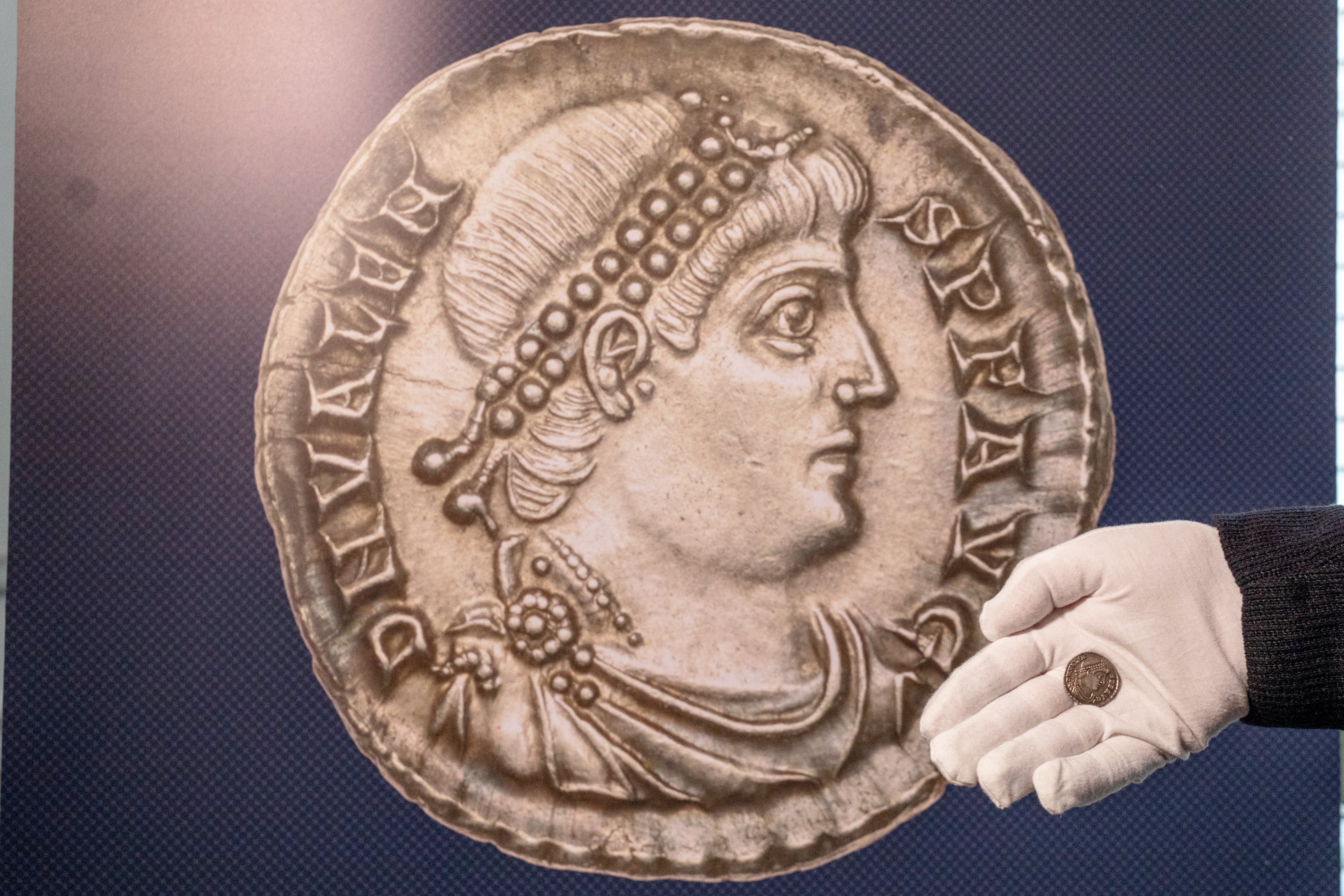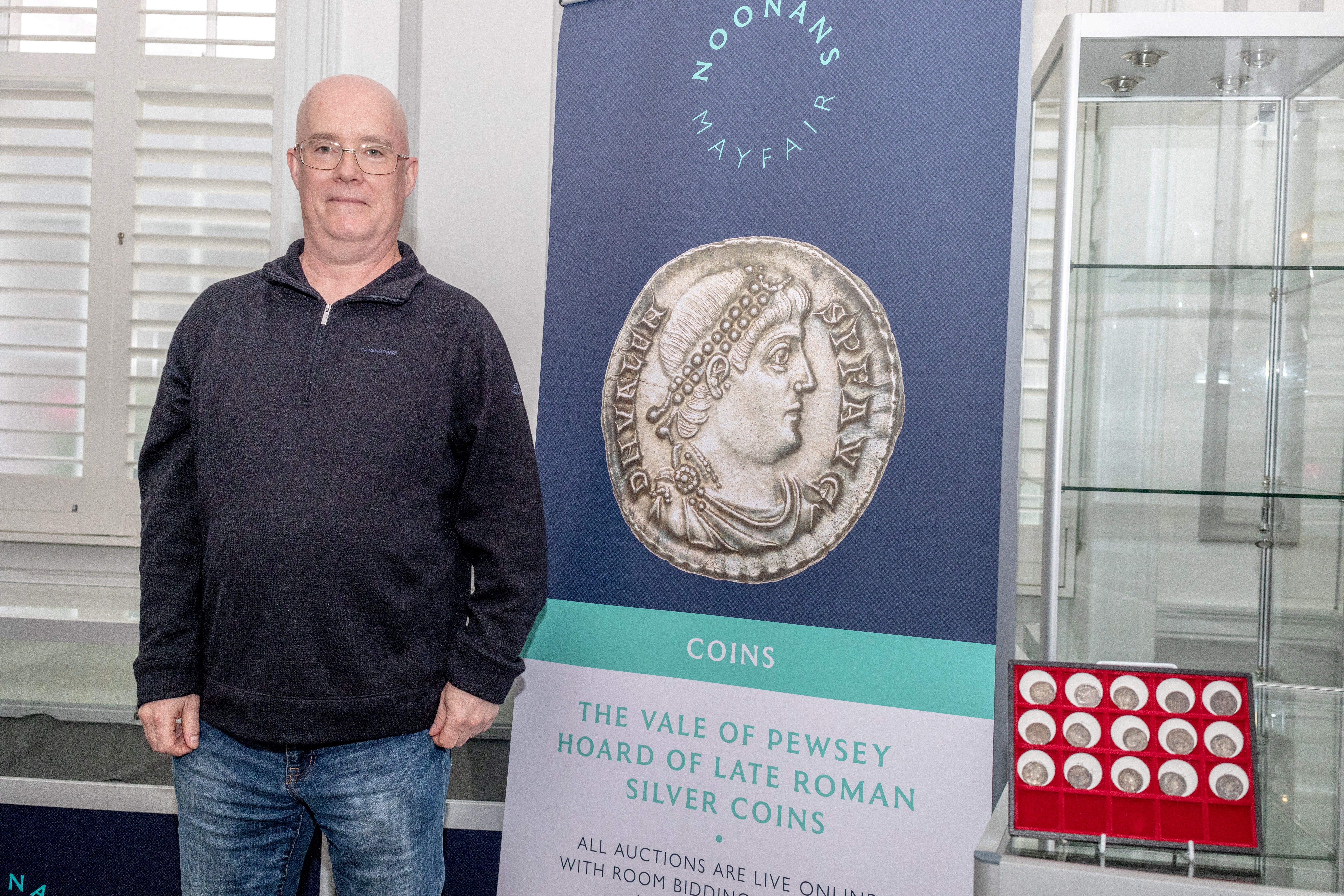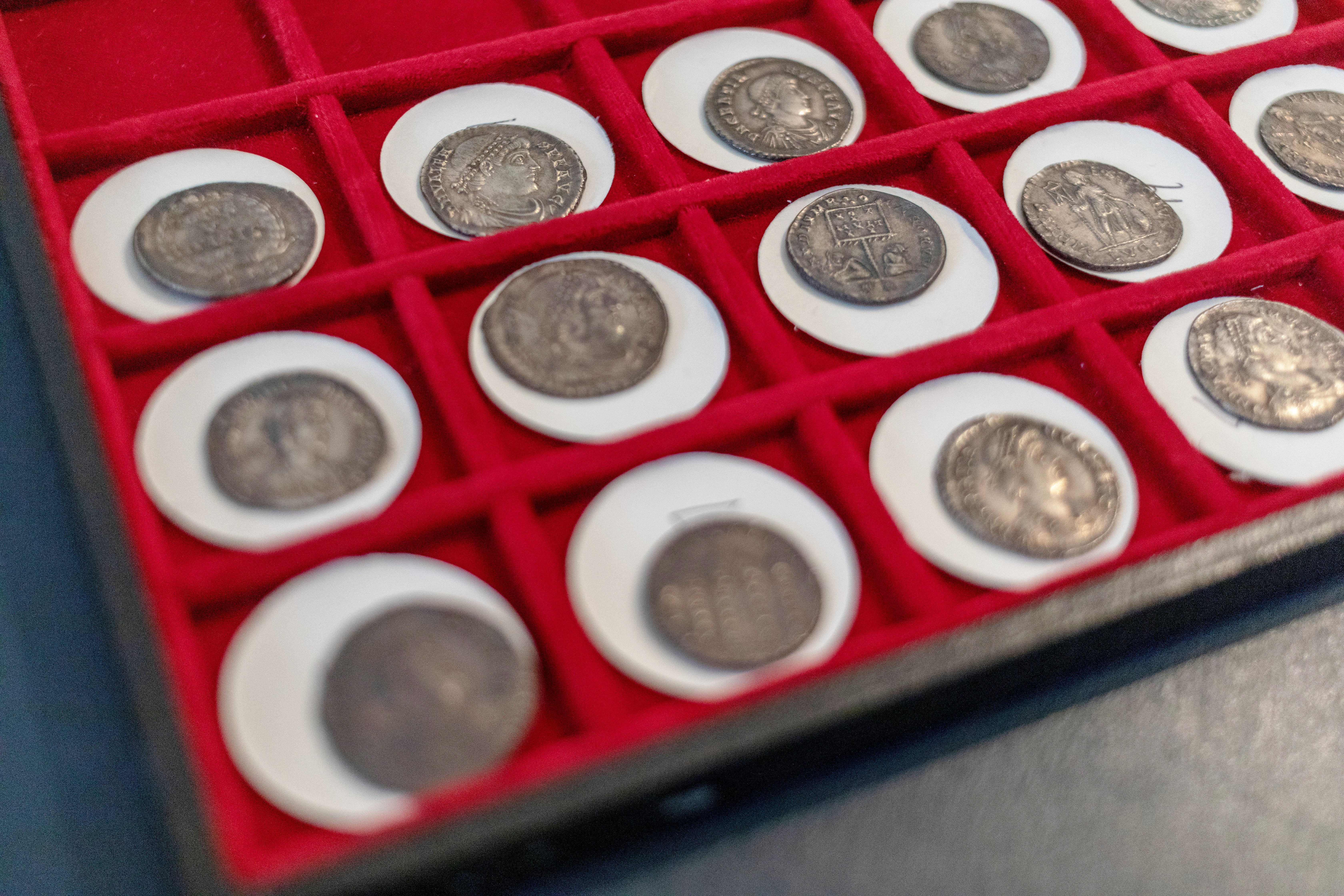Roman silver coins discovered by veteran treasure hunters sells for thousands
The trio found coins comprising silver siliqua and miliarense dating from 340 AD to 402 AD

Your support helps us to tell the story
From reproductive rights to climate change to Big Tech, The Independent is on the ground when the story is developing. Whether it's investigating the financials of Elon Musk's pro-Trump PAC or producing our latest documentary, 'The A Word', which shines a light on the American women fighting for reproductive rights, we know how important it is to parse out the facts from the messaging.
At such a critical moment in US history, we need reporters on the ground. Your donation allows us to keep sending journalists to speak to both sides of the story.
The Independent is trusted by Americans across the entire political spectrum. And unlike many other quality news outlets, we choose not to lock Americans out of our reporting and analysis with paywalls. We believe quality journalism should be available to everyone, paid for by those who can afford it.
Your support makes all the difference.A hoard of Roman silver coins discovered by veteran treasure hunters six feet from their tent on a camping trip has sold for £100,000.
The find of more than 160 silver coins dubbed the ‘Pewsey Hoard’ was estimated to be worth between £30,000-£40,000.
Veteran detectorists Mick Rae, 63, a herds manager, computer shop owner Robert Abbott, 53, and carpenter Dave Allen, 59, found a total of 161 coins, comprising silver siliqua and miliarense dating from 340 AD to 402 AD in September 2020.
The trio – who have more than 90 years metal detection experience between them – made the discovery of a lifetime during a camping weekend in Wiltshire.

Just weeks before they had camped at the same spot directly on top of where they finally found the hoard.
After collecting the coins, which were found in mint condition, the friends took them home in a washing up bowl.
Mr Abbott, who lives in Essex, explained that the rare discovery occurred over two days just after the first Covid-19 lockdown ended.
He said: “Having finished breakfast first, I turned on my machine, a Minelab Equinox 800, and having walked around six paces from the tent, I found several tent pegs and just under the surface a late Roman silver siliqua in pristine condition.
“A few moments later beside it, I found another one.”
Robert’s find prompted Mick, from Wiltshire and Dave, from Essex, to eagerly grab their detectors and join in the search.
Mr Abbott added: “Ironically, we had been camping there two weeks previous for a week-long detecting outing.
“What we hadn’t realised is we’d actually camped right on top of the area where the coins were found.”
The British Museum has studied the coins and is keeping two for its collection.

Nigel Mills, of Noonans, said all of the coins were in “mint condition” and did not require a “clean” since their discovery.
Mr Mills said: “The hoard was buried at a time when Roman rule in Britain under Emperor Honorius was no longer viable with the army being recalled to protect other provinces.
“In AD 410 Britain was told to protect itself by Honorius.
“As a result Britain has become a treasure island of late 4th Century and early 5th Century gold and silver Roman coin and jewellery hoards as the local population buried their valuables and then fell victim to Saxon raids.”
Specialist Coin, Medal and Jewellery auctioneers Noonans sold the hoard at the firm’s saleroom in Mayfair, central London.
SWNS




Join our commenting forum
Join thought-provoking conversations, follow other Independent readers and see their replies
Comments